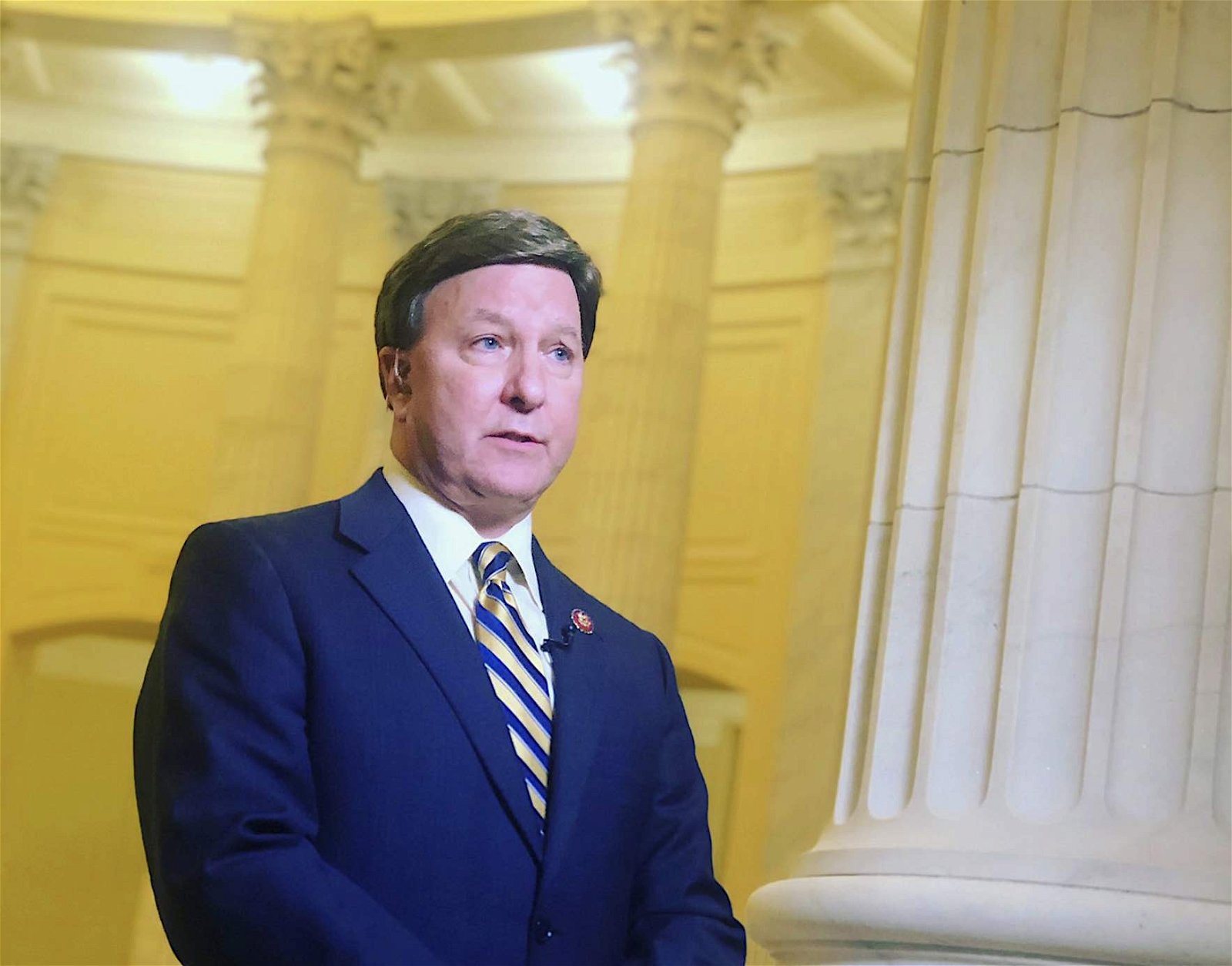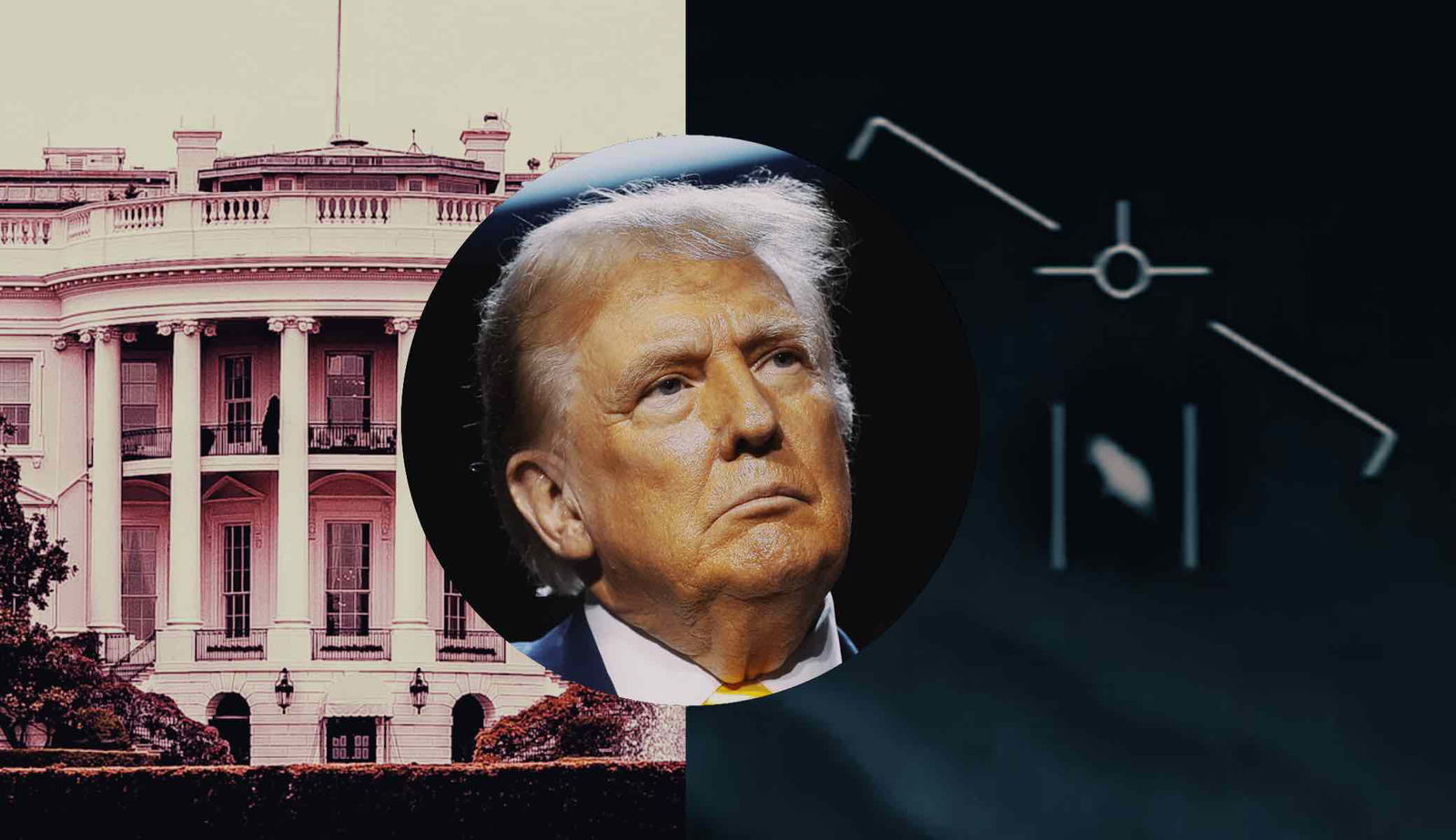With a sweeping victory that followed one of the most divisive U.S. elections in recent memory, Donald Trump is now set to return to the White House as the 47th President of the United States.
Although many questions remain about how the next administration’s policies could shape America over the next four years in terms of national defense, foreign policy, social issues, and the U.S. economy, another question on the minds of some Americans involves what Trump’s next term in office could mean for government transparency on the issue of unidentified anomalous phenomena (UAP).
Trump’s past statements involving mysterious aerial objects—traditionally known as UFOs—have been wide and varied. In a 2019 ABC News interview, Trump told ABC anchor George Stephanopoulos that he didn’t necessarily believe in UFOs himself, although he didn’t doubt the claims made by U.S. military personnel who have told him they have had encounters.
“I want them to think whatever they think,” Trump told Stephanopoulos of U.S. Navy pilot reports involving UFOs in 2019, mentioning that he had “one very brief meeting on it.”
“But people are saying they’re seeing UFOs,” Trump continued. “Do I believe it? Not particular.”


More recently, Trump’s tone on the subject seemed to have changed, if only slightly, when he told celebrity influencer Logan Paul on his podcast that “there are some really strange things they see flying around out there,” adding that personnel he has met with “will tell you there’s something going on.”
However, while speaking with Joe Rogan in a long-form interview on the comedian’s podcast shortly before the recent U.S. election, Trump seemingly reaffirmed that despite what he hears from others who claim to have had firsthand experiences, he is still not a believer himself.
“It’s never been my thing,” Trump told Rogan on the podcast. “I have to be honest; I never have been a believer.”
Trump then proceeded to tell Rogan about a description provided by one military pilot he spoke with, who observed “a round ball, but it wasn’t a comet or a meteor.”
“It was something,” Trump told Rogan, adding that he is frequently asked about UFOs.
“I get that question as much as almost any question,” Trump said.
Although Trump’s own position on UFOs appears to lean skeptical, several individuals he is believed to be eyeing for positions in his new administration have expressed views on the subject in the past that could help offer a clearer perspective on how the issue of UAP transparency might be treated over the next four years.
Presently, several outlets have reported Marco Rubio (R-FL) is among the leading contenders for the position of Secretary of State in Trump’s new administration (Update: Senator Rubio was subsequently confirmed as Trump’s Secretary of State following the publication of this article).
Rubio, who has served for years on the Senate Select Committee on Intelligence, has a long history of speaking publicly about UAP, and in many instances arguing against what he perceives as unnecessary government secrecy toward the subject.
Last February, after the appearance of a Chinese spy balloon that was followed by a series of incidents where objects were shot down over the U.S. and Canada, Rubio expressed frustration over information that he and other lawmakers were shown during a classified briefing on Capitol Hill being withheld from the public.
“95% percent of what was being discussed in that room today could be made public without compromising the security of this country,” Rubio said, adding that he had been made aware of additional reports of unusual aerial objects numbering “dozens this year alone.”


“An interagency task force was created to study all of this from a scientific perspective,” Rubio said, adding that “my concern now is that the Department of Defense is not sharing that information with those scientists, so that you can compare the data we have on these instances, from the ones we have retroactively in the past, some of which have been explained, so that we have a better understanding of this.”
Although Rubio has not yet been confirmed as Trump’s pick for Secretary of State as of the time of this reporting, it has recently been revealed that Mike Waltz (R-FL.) will serve as his new National Security Adviser, and like Rubio, Waltz has a past record of speaking openly about the need for U.S. government transparency on the UAP issue.
“I think we need to take this incredibly seriously,” Waltz said during an interview last year, adding that he planned to ask for a briefing regarding the whistleblower claims made by David Grusch, which The Debrief was first to report on June 5, 2023.
“Congress directed the Pentagon to put together an interagency task force across the intelligence community to look at all of these anomalies,” Waltz said during the interview. “These strange objects that are doing things that we can’t explain, that are defying physics.”
“We now have such a proliferation around the world of satellites, of radars, of sensors, of cameras, that, you know, 20-30 years ago, it was Joe Bob and his pickup truck takes a grainy photo of something he sees in the sky. Now we have radar imagery, thermals, different types of infrared sensors, you can’t deny this stuff.”
“This is real, hard data that is showing objects that are doing things that can’t be explained,” Waltz said. “And it’s that data that we’ve demanded the intelligence community and the Pentagon analyze and come back to Congress to explain, and through us, to the American people.”
Another likely appointee Trump could select is former Director of National Intelligence John Ratcliffe, who has reportedly been discussed as a potential pick for CIA Director or possibly the Attorney General in Trump’s new administration (Update: Ratcliffe was later confirmed as Trump’s selection for the position of CIA Director following the publication of this article).
Shortly after serving as Director of National Intelligence in the last Trump administration, Ratcliffe made several very intriguing statements regarding data collected on UAP by the U.S. intelligence community during an interview with Fox News host Maria Bartiromo in 2021.


“There are a lot more sightings than have been made public,” Ratcliffe told Bartiromo. “Some of those have been declassified. And when we talk about sightings, we are talking about objects that have been seen by Navy or Air Force pilots, or have been picked up by satellite imagery that frankly engage in actions that are difficult to explain.
Ratcliffe went on to also describe objects performing “movements that are hard to replicate that we don’t have the technology for, or traveling at speeds that exceed the sound barrier without a sonic boom.”
“When we talk about sightings, the other thing I will tell you is, it’s not just a pilot or just a satellite, or some intelligence collection,” Ratcliffe told Bartiromo during the interview, adding that “usually we have multiple sensors that are picking up these things.”
While all these prospective Republican appointees could indicate promising conditions for UAP transparency in the forthcoming presidential administration, a few potential selections Trump and his team are reportedly discussing have UAP watchdogs less excited.
House Armed Services Chair Mike Rogers (R-AL) was at one time reportedly being considered by Trump as his Secretary of Defense, according to a recent Politico report, which characterized the Alabama Republican as being “a dark horse in a field of potential Trump Pentagon picks” on account of several issues where the two appear to differ (Update: It was later announced on Tuesday that Trump had chosen Pete Hegseth, a U.S. army veteran and Fox News host, for the Defense Secretary position).


Last year, Rogers, along with Representative Mike Turner (R-OH), became two key figures in a Republican-led effort supported by Senate Minority Leader Mitch McConnell (R-KY) and Speaker of the House Mike Johnson (R-LA) to curtail a proposed piece of UAP transparency legislation before its inclusion in the FY 2024 National Defense Authorization Act (NDAA). The 64-page proposal, dubbed the Unidentified Anomalous Phenomena Disclosure Act of 2023 (UAPDA), aimed to propel efforts to disclose official information related to UAP. Ultimately, only a significantly watered-down version of the bill finally made its way into the NDAA.
Despite some promising potential picks that could be significant in the move toward greater UAP transparency (and at least one that potentially raises concerns), it seems unlikely that UAP will become a main area of focus for the incoming administration, particularly amid the range of more down-to-earth issues that presently occupy the attention of the majority of concerned Americans.
Nonetheless, for those watching the UAP debate, several of the newly elected president’s potential selections for his new administration could prove to be consequential regarding how the U.S. government handles UAP-related issues over the next four years.
This news report is presented solely as analysis and is not intended as an endorsement of any political party or politician discussed herein.
Micah Hanks is the Editor-in-Chief and Co-Founder of The Debrief. He can be reached by email at micah@thedebrief.org. Follow his work at micahhanks.com and on X: @MicahHanks.

